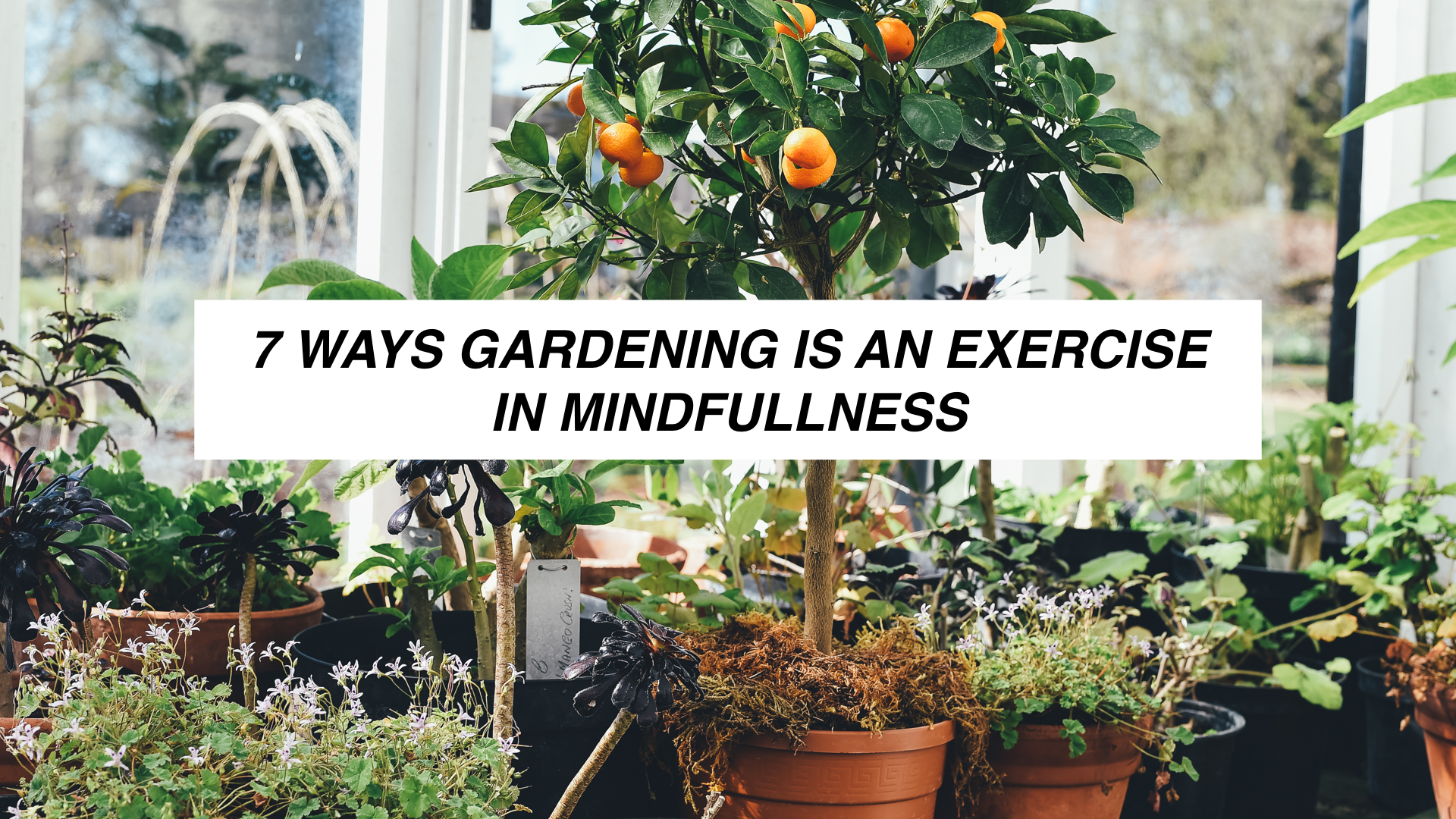
11 Jul 7 Ways Gardening is an Exercise in Mindfulness
From: PiNK SUMMER 2017 p.14-p.15 (Click here to view online magazine)

Have you ever wondered why your first glimpse of a patch of crocuses each spring elicits happiness?
BY MARTHA BRETTSCHNEIDER
Whether or not we have a garden of our own, something in our DNA draws us to flowers. The connection goes beyond appreciating the surface beauty of the blossom. The very act of connecting with flowers and other plants instills a sense of calm and inner peace that boosts our overall happiness levels.
Science backs up the Chinese proverb that tells us If you want to be happy for a lifetime, be a gardener. Research shows that people who spend time cultivating plants experience less stress, have a more positive outlook on life, and are healthier both physically and mentally.
Having led a highly nomadic life during my first 30 years, I was a late bloomer when it came to learning the happiness benefits of gardening. Once I settled down 20 years ago (not without some resistance, I might add), my garden became my first mindfulness mentor—long before I had ever heard the term.
1. Gardening grounds us in the present moment.
The sensory experience of gardening—working the soil, feeling the breeze on our cheeks, inhaling the fragrance of a rose, experiencing the strain in our muscles as we lift a shovelful of dirt, tasting a freshly plucked berry—keeps the gardener grounded in the present moment. Worries about the future or the past dissolve in an instant while digging in the dirt. The garden channels all energy into the here and now, the only place where anything real happens.
2. Gardening connects us to the source of creation.
By cultivating new growth and beauty in the environment and helping the earth deliver its gifts, we are acting in alignment with the big- picture plan of the universe. The earth rewards us for paying attention to its needs. As Ralph Waldo Emerson once wrote, “Earth laughs in flowers.”
3. Gardening—and maintaining a compost pile in particular— teaches us that beauty will eventually arise from the muck.
This is a good lesson to hold in your heart in the midst of dark times. You might be bogged down in a life situation that feels like a slimy mix of coffee grounds, vegetable skins, and rotting leaves, but with time, patience, and self-reflection, positive transformation occurs.
4. Gardening teaches us how to weed out nonbeneficial plants to make room for new growth of our choosing
in much the same way that mindfulness teaches us to weed out nonbeneficial thoughts that don’t serve us. Each practice supports the other, resulting in a flourishing of our internal and external gardens.
5. Gardening nurtures creativity.
Color, texture, and form are the paintbrushes in landscape design. But gardening’s creativity benefits extend beyond the flower border; by engaging our senses, gardening pulls us into the creative space of the right brain. The quieter, more spacious mind that gardening cultivates prepares fertile ground for creative ideas and problem solving to take root and reach for the sun. The universe wants us to create!
6. Gardening teaches us to let go of our need for control.
My favorite garden writer, Margaret Roach, sums it up best in The Backyard Parables: “As I often remind myself and anyone listening, there is one thing I know with certainty about gardening after 30 years of study and practice: Things will die.” Gardeners learn to accept impermanence with the knowledge that spring will return one day without fail.
7. Gardening teaches us that even on rainy days focusing in on the details unveils sparkling, unexpected beauty.
And without that rain, growth is impossible.











